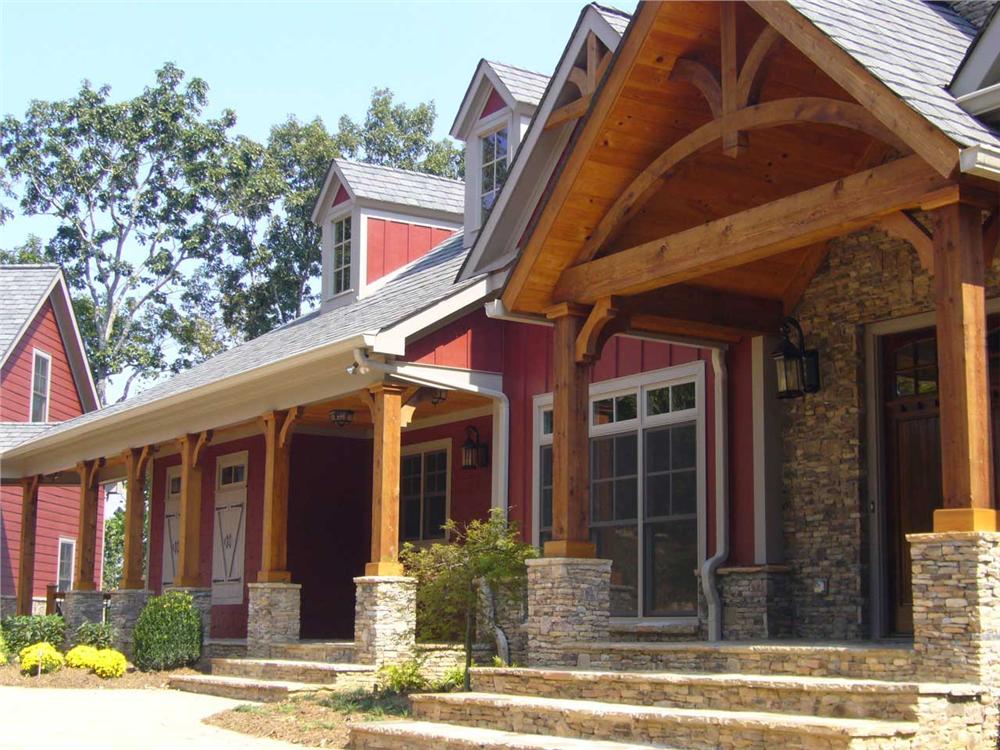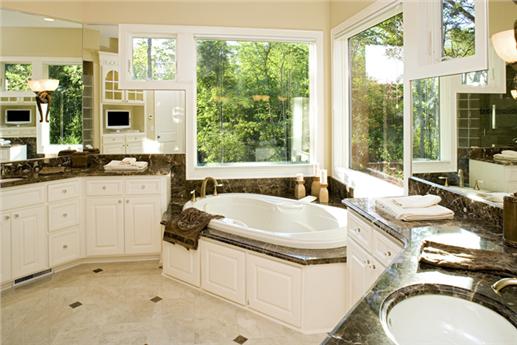I’m sure that by now some of you are getting sick of my advice for finding a good builder, so I thought I’d get someone else to preach for me today. I found an interesting article on homeadditionplus.com; the author is Debbie Rodgers.
Some of the more interesting tips include:
- Plan your project carefully. It’s always a good idea to clip pictures, make sketches, and write descriptions. This will help you accurately convey to the contractor what you want the finished product to be.
- Make a list of contractors. (That’s what I’ve been saying all along!) Ask your neighbors or friends for the names of reputable tradesmen. Contact material suppliers — lumberyards, for example — and ask for recommendations.
- Get at least three written bids for the project, but don’t give in to the temptation to automatically accept the lowest bid. A higher bid may be worth the price in better materials, workmanship and reliability. If you get a very low bid, the contractor may have made a mistake or forgotten to bid on everything you wanted. If they have deliberately low-bid, they may use cheaper materials or take shortcuts to make a profit.
- Many states and provinces require registration and/or licensing. For the USA, www.nationalcontractors.com provides a starting point for your state and type of construction. If licences are required in your jurisdiction, be certain to ask to see your contractor’s licences and be sure that it’s not expired.
- Ask for references and then check them out. Look at the projects and ask the previous clients if they are satisfied with the quality of work done, if it was started and completed on schedule and if it is complete.
- Get a signed, written contract and be sure you understand it. The Construction Contractors Board of Oregon claims that the single biggest cause of homeowner-contractor disputes is the written contract: not having one, having a poor one, or having one everyone ignores. A good contract should include:
- The company name, address (not a post office box) & phone number, the name of the builder, contractor and license number, if applicable The total price and payment schedule
- A detailed project description
- A materials list
- A statement that all necessary permits and inspections are the responsibility of the contractor
- Starting and completion dates
- Warranties of workmanship, the length of the warranty, and specifically what’s covered and what’s not
- Contractor’s guarantee that he carries liability insurance and worker’s compensation coverage
- A statement that clean-up will be done by the contractor
- Make any changes to the project in writing with a “work order change” to avoid misunderstandings and surprises.
- Keep pets and children away from the construction site. This will ensure not only their safety, but also that of the workers. In addition, it helps keep the project on schedule.
- Inspect the work regularly.
- Pay directly and promptly according to the contract.
- Be wary of hourly, time and materials or cost-plus pricing where the final price is not determined until completion of the project. Although it may seem higher, a fixed price may give you the best protection and price.
- Be cautious about upfront payments for more than 15% of the contract price. The schedule and criteria for each installment should be clearly defined in the contract. Any installments should be not be required on a certain date, but correlated to work completion.
- Do not pay cash. A reputable builder will ask for a check.
Debbie has some really good insights. You should really Check it Out!





